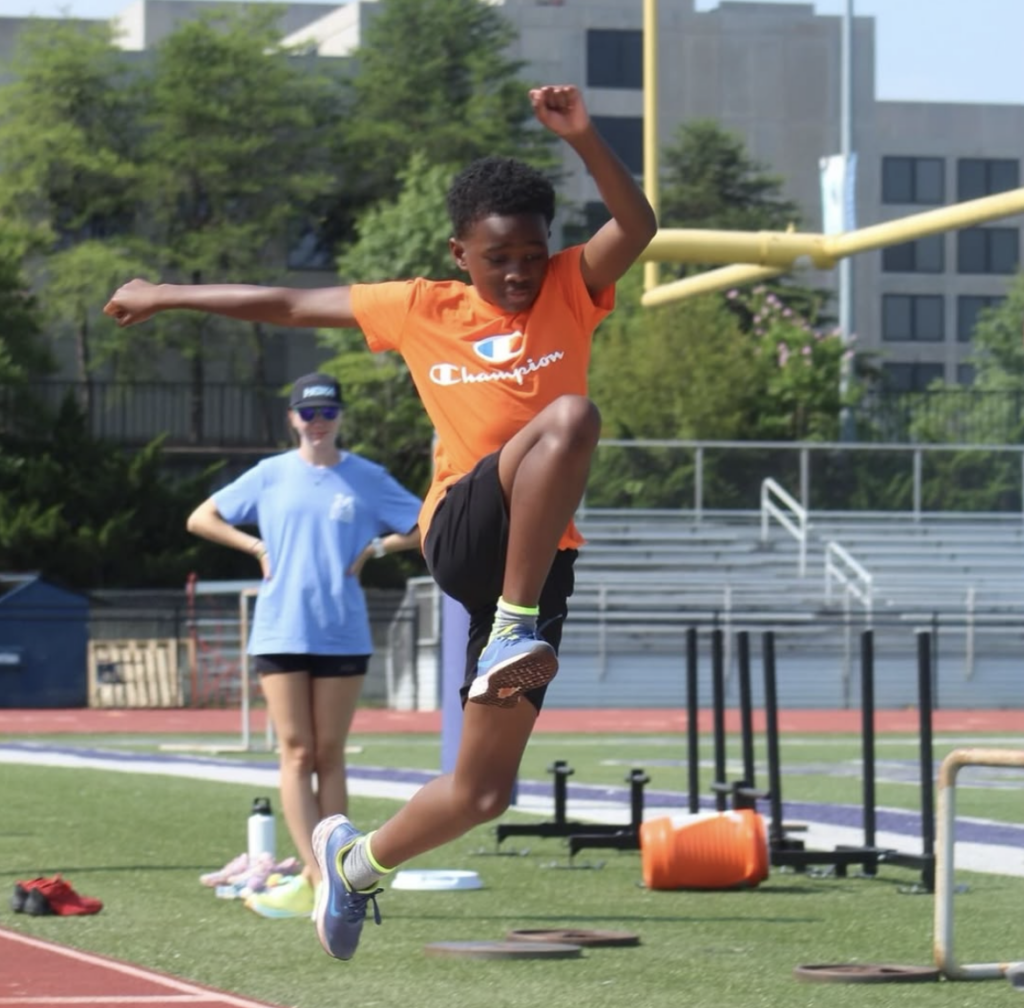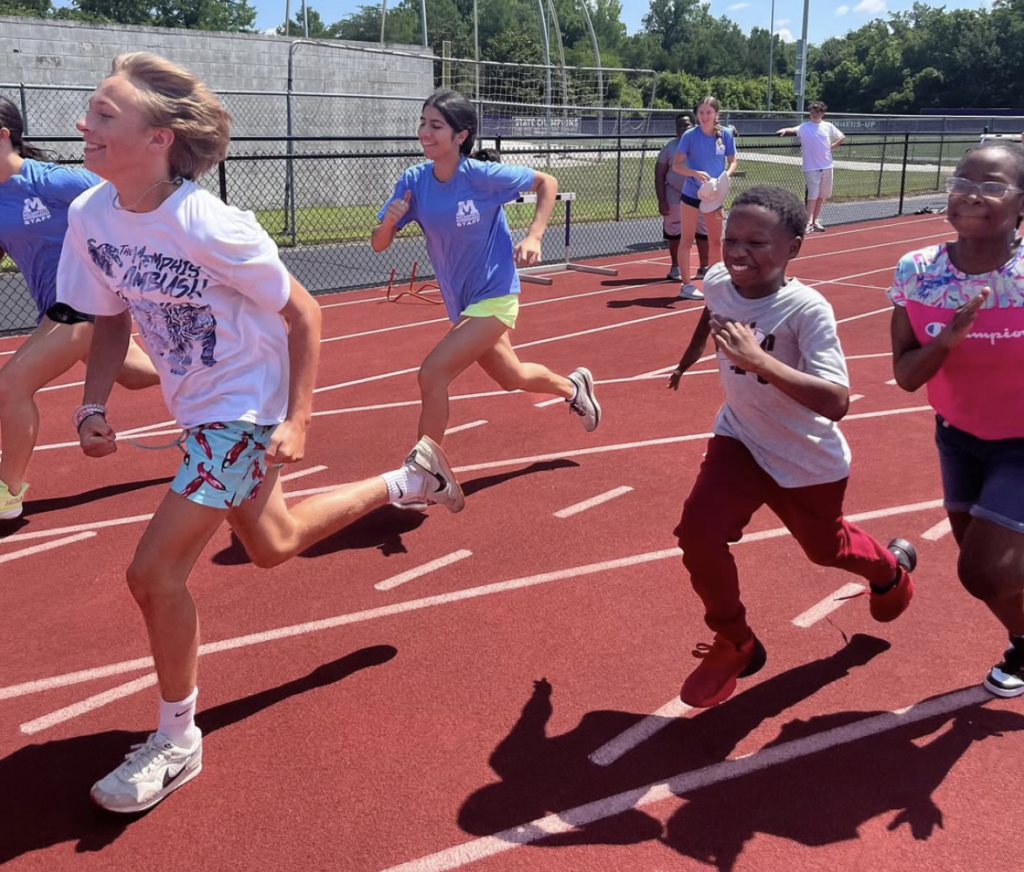Running can be incredibly rewarding for young athletes, but it demands more than just speed and stamina. What you eat significantly affects how well you perform, recover, and grow stronger. With the right approach to nutrition, young runners can power through practices, ace their races, and stay healthy all season long. That’s why Memphis Youth Athletics is here to help with some nutrition tips for young athletes.
The Foundation: A Balanced Diet
For young runners, a balanced diet is the cornerstone of sustained energy, peak performance, and proper recovery. Food is fuel—what you eat directly impacts how well you train and compete. A young runner’s diet should be rich in whole foods that provide the right mix of carbohydrates, proteins, and healthy fats, ensuring that your body gets everything it needs to keep up with the demands of training.
Before we break down what carbohydrates, proteins, and healthy fats are, we want to remind you that portion sizes matter, too! They should match your training intensity and goals. Remember, fueling your body with the right nutrients isn’t just about performance—it’s about staying healthy and feeling even when you’re not training or competing. Meeting your personal records or goals isn’t as fulfilling if you’re miserable, and your health and well-being are more important than any athletic achievement!
Carbohydrates: Your Go-To Fuel for Running
Now, let’s talk carbohydrates! As young athletes reach adolescence, carbs should make up about 50% of their daily energy intake to ensure that their bodies have a consistent and adequate supply of fuel to support their growing muscles and increasing training demands. But what are they?
Carbohydrates are the primary energy source for young runners, acting as the power source that pushes every stride. When you eat carbs, your body breaks them down into glucose, which is stored in your muscles as glycogen. This glycogen is what your muscles rely on during runs, especially during high-intensity training or long-distance races. Without enough carbs, you might run out of steam midway through a workout.
Focus on complex carbohydrates like whole grains, fruits, vegetables, and legumes for steady energy. These foods provide a slow and steady release of energy, helping you maintain endurance throughout your run. Simple carbs, like those in sugary snacks, can lead to quick energy spikes followed by crashes, so while you don’t need to necessarily avoid them like the plague, they’re best consumed sparingly.
Timing is also crucial in the nutrition game—eating a carbohydrate-rich meal or snack a few hours before a run can help ensure your glycogen stores are topped off, giving you the energy you need to perform at your best.

Protein: Repairing and Strengthening Muscles
Protein is vital in helping young runners recover, build, and maintain muscle strength. After a challenging workout or a long run, your muscles need protein to repair the tiny tears that occur during exercise, allowing them to grow stronger over time.
As a general guideline, young athletes should aim for protein to make up about 15-20% of their daily energy intake, depending on their training intensity. Here are some of the best sources of protein:
- Lean meats like chicken, turkey, and fish
- Eggs and dairy products such as milk, yogurt, and cheese
- Plant-based proteins like beans, lentils, tofu, and quinoa
- Nuts and seeds, which also provide healthy fats
It’s important to spread protein intake throughout the day, with particular emphasis on post-run nutrition. Consuming a protein-rich snack (like a protein shake) or meal within 30 minutes of finishing a run can significantly enhance muscle recovery. Consistent protein intake supports muscle repair and overall growth, making it a crucial part of a young runner’s diet.
Healthy Fats: Sustained Energy for Long Runs
If you’ve heard someone say, “That’s fattening,” or a similar expression, and now assume all food with fat is bad, we’re here to reverse this idea. Fats aren’t bad!
Healthy fats are super important for a young runner’s nutrition. They provide a steady source of energy that can keep you going strong, especially during long runs or tough practices. Unlike carbs, which give you quick energy, fats are like slow-burning fuel that helps you maintain your energy over time. This is especially helpful for kids running cross-country or participating in other endurance activities.
Below are examples of foods with healthy fats that are easy to add to meals.
- Avocados
- Nuts & Seeds (including their oils)
- Oily fish (like salmon)
- Tofu
- Peanut butter
When you balance your meals with healthy fats, you’re giving your body the tools to stay energized during those longer runs. Plus, fats help you feel full and satisfied, which can be important when you’re training hard.
Note: As we said earlier, pre-adolescents rely more heavily on fat for energy. In contrast, adolescents and post-adolescent people rely more on carbs. However, no evidence suggests younger athletes need greater fat intake for proper nutrition.
Hydration: Key to Endurance and Performance
Staying hydrated is one of the most important things young runners can do to perform their best. Water is an important nutrient that helps regulate your body temperature, keeps your muscles working properly, and prevents you from getting tired too quickly. When you’re dehydrated, even a little, you might notice that you feel sluggish or that it’s harder to keep up your pace.
To stay hydrated, drink water throughout the day—not just during practice or a race. Start your day with a glass of water and keep sipping regularly. On hot days or when your training is intense, you might need even more water or an electrolyte drink to help replace what you lose through sweat.
We can pretty much guarantee that your body will appreciate all this water with more energy, better endurance, and stronger performances every time you hit the track or trail.

Reach The Finish Line With Proper Nutrition & MYA
At Memphis Youth Athletics, we’re here to help you become the best runner you can be. If you want to put your new nutrition program to the test, start your running journey, or meet other runners, check out our training camps and organizations! Whether you’re just starting out or looking to improve, we’re excited to be a part of your journey. Let’s reach those finish lines together!

